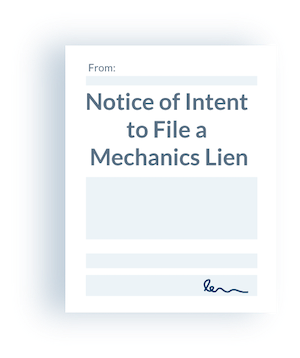
Mechanics lien deadlines are established by statutes. Sometimes, as is the case in California and Texas, the right to file a mechanics lien claim is embedded in the state’s constitution. In other states it is a strong public policy that forbids parties from waiving the rights or forcing a party to give them up (see “No Lien Clause” tag).
But can parties agree within a contract to move the deadline around?
Thoughtful Article About Contracting To Extend The Washington Mechanics Lien Deadline from Ahlers & Cressman
Alhers & Cressman, a construction law outfit out of Seattle, published a very thoughtful article about this topic on their blog inspired by some debate between some Washington construction attorneys: May Parties Contract Around A Statutory Lien Recording Deadline?
It appears that the focus of the debate was on whether claimants could extend the mechanics lien deadline from the statutory 90 days to something longer. As a practical matter, this is frequently needed because parties are negotiating a deal, waiting on payment up the chain, or caught up in some other situation that makes payment likely but just not timely.
There wasn’t a consensus among the attorneys as to whether the deadline could or could not be extended. The article has a lot of good thoughts in favor and against the ability to extend the lien deadline, and I highly recommend you head over to the blog to read it.
Alhers & Cressman ultimately conclude with some practical best practice advice, which is this:
As the Washington Supreme Court stated in Bain v. Metro Mortgage Group, “we will not allow waiver of statutory protections lightly.”[vi] Until this issue is addressed by the Washington appellate courts, extending the 90-day notice of claim of lien deadline provision is fraught with too much uncertainty to be advisable. Read entire article here.
If A Mechanics Lien Deadline Can Be Extended, Can It Also Be Shortened?
One thing not mentioned by the article and presumably not discussed by the debating attorneys is the opposite scenario, which is whether the the statutory deadline could be shortened by contract. After all, if the parties can contractually change the statutory deadline in one way it seems that they should also be able to accomplish the opposite result, right?
We touched upon this issue yesterday in the post “Mechanics Lien Rights Cannot Be Waived – But Can They Be Reduced To Obscurity?”
Many contractual provisions already exist which may have the practical effect of reducing the mechanics lien claim period, or eliminating it all together. In the article from yesterday we talked about pay-if-paid clauses, mediation clauses, and “notice claim provisions” as examples of contractual agreements that impact a party’s statutory right to file a lien.
In the Washington state, some of these provisions have even been considered and upheld by the Washington Supreme Court, although the court has yet to address the friction between the provisions and the mechanics lien right.
One good example of this is the “notice claim provision,” which is the subject of two great articles (also from Alhers & Cressman) published in the WSBA Bar News magazine: Part I and Part II of “Construction Contract Draconian Notice Provisions: Is Prejudice Still The Issue? ” In these articles the authors claim that “Washington state is likely the strictest in the nation when it comes to interpretation of written notice in construction contracts.”
It seems funny that the Washington Supreme Court would allow a contractual notice provision to reduce a claims period down to something as ridiculous as 7 days while also claiming in the Bain case that “we will not allow waiver of statutory protections lightly.” While the claims periods may be contractually agreed upon they clearly render lien and bond claim statutory periods meaningless.


